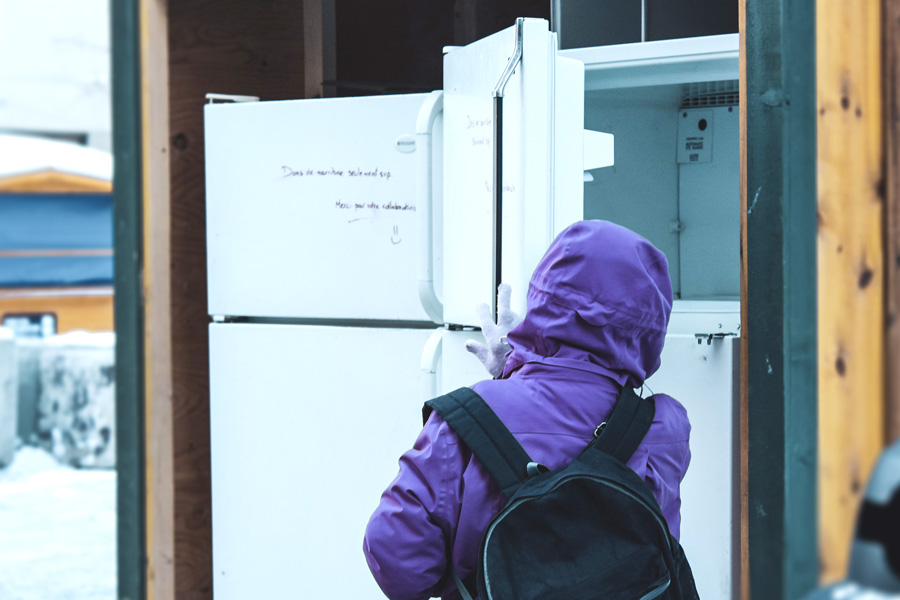There have long been debates in the food policy world over the relationship between financial want and food poverty. Notwithstanding these debates, what is clear is that the COVID-19 crisis has resulted in higher levels of indebtedness, with impacts on food poverty. Levels of destitution were growing before the COVID-19 outbreak, with key groups of low-income and gig-economy workers surviving week-to-week, managing through a combination of support from family and community networks, along with using credit card debt to survive. But many would not have been users of food banks or even considered themselves to be food insecure. That has changed.
Over the lockdown period, households in the UK have accumulated savings of up to £150 billion, which the Government is hoping will stimulate the economy in the post-lockdown period, as people engage in an orgy of spending. But sitting uncomfortably alongside this is an inequality, with low-income households using up their savings, which were meagre to start with, and ending up with more debt.
Average UK household debt has reached a new peak. According to The Money Charity, the average unsecured debt per UK adult in July 2020 was £3,947 and the average credit card debt per household was £2,238, with 12.8 million households with no, or less than £1,500, savings. These figures hide inequalities, with a higher, relative to income, level of debt among low-income households. The Bank of England found that low-income households, ‘particularly those with unsecured debt, have reported being in financial difficulty and will be more vulnerable to future shocks. They are less likely to have savings or to have been able to accumulate savings through the pandemic’. The fivefold increase in food bank usage during the pandemic can be partially accounted for by households losing support from family/community networks and being encumbered with high repayment loans and seeking ways to cut down on food purchases. Such resources previously allowed them to bridge between times of surplus and want.
In the first period of lockdown in 2020, credit card issuers stopped the cards of up to half a million customers, thus limiting their ability to juggle budgets and access online food ordering, and driving them to seek other sources of loans or credit. During the pandemic there has been an increase in doorstep aggressive promotion of payday loans. The Financial Conduct Authority has condemned these aggressive doorstep practices. Typically, those who take out loans of £1,500 in this way end up having to pay back as much as £3,000 and are often caught in a vicious circle of borrowing more to pay back loans. Citizens Advice estimated that one in nine people have fallen behind on their bills during lockdown and County Court judgements for non-payment of loans are at an all-time high.
The two main payday or subprime loan providers, Provident and Amigo, have ceased to operate, and as part of the winding-up process have been advised to compensate customers for aggressive practices. These practices included encouraging households to take out loans beyond their means and ability to pay, then encouraging them to take out loans to pay existing loans, and so on. Amigo asked for a guarantor for the loan, who preferably was a family member, enmeshing families in debt. Both companies charged high interest rates (approximately 49% a year). The amount of compensation will be minimal, with one estimate suggesting that if your repayment is £400 you may only get £8 back in the scheme.
Five main points emerge from the above:
- Household debt has increased among low-income households. This has consequences for food purchasing as this is the elastic item in the budget and one area where households can economise.
- The result is less healthy eating and weight gain. In everyday terms this meant that 16% of parents served smaller portions to children, skipped meals or went for a day without eating a meal
- Without access to credit cards, many were further isolated and could not order food online or use credit to tide over from one period to another.
- The pandemic and the loss of jobs and income among sections of the population resulted in more doorstep loans being taken out.
- None of this includes the illegal or informal loan systems, which also have grown.
So what can be done?
There has been a series of short-term measures to address food poverty. The various government U-turns brought about by Marcus Rashford’s lobbying are short-term and are not cemented in long-term policy changes. As we come out of lockdown, we need to recognise that many households will be resuming work having accumulated debts during lockdown, thus placing healthy food consumption at continued risk. A House of Commons report recommended that increases in monetary and food aid established during the pandemic should be maintained as lockdown eases, made available to more people, and the amounts increased (and indeed many MPs are arguing this same case).
There is a need to campaign to extend the remit of school meals and holiday hunger schemes and for the continuation of the £20 Universal Credit top-up. But, as we write, the Government has announced the £20 top-up payment will end in September 2021. To fight food poverty, there is a need to monitor household debt and credit card indebtedness and support consumers in maximising their benefit entitlements and uptake, alongside provision of savings/budgeting and borrowing/debt advice. This effort should be supplemented with the use of other data sources (household indebtedness/econometric food sales data/ community responses) to monitor and identify those at-risk of food insecurity.

